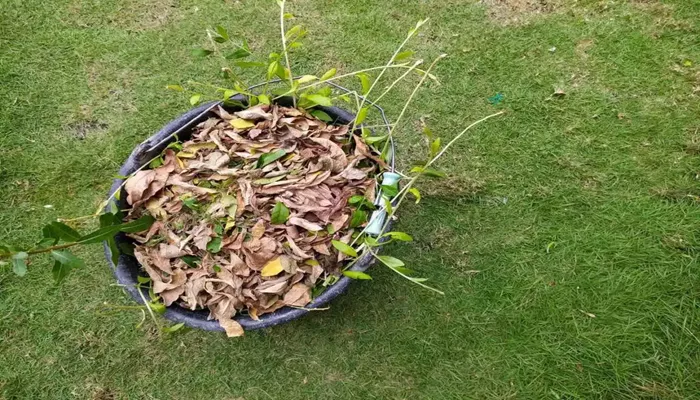Why You Should Keep Dead Leaves for Your Garden.
As winter approaches, many gardeners hurriedly clear their gardens of fallen leaves, treating them as waste. However, these leaves can actually be a valuable asset for your garden. Used correctly, they can protect your plants from the cold and prepare the soil for spring. Here’s why you should rethink tossing those dead leaves and how to use them effectively.
Mulch: A Natural Protective Cover
Dead leaves make excellent natural mulch. When spread around plants, they create a protective layer that retains soil moisture and shields it from winter’s harsh conditions. This layer acts as a barrier against the cold, maintaining a stable temperature around plant roots and protecting them from frost.
Additionally, leaf mulch prevents soil from compacting due to winter rains and temperature changes. As the leaves decompose, they enrich the soil with organic matter, improving its structure and fertility for spring.
Bob’s Tip: For best results, gather the dead leaves, chop them lightly with a mower or shredder, and spread them in a 5 to 7 cm layer around your plants. This will help them decompose evenly and prevent a too-thick layer.
A Refuge for Wildlife and Beneficial Insects
Dead leaves also support garden wildlife during winter. Many beneficial insects, such as ladybugs, solitary bees, and beetles, seek shelter under leaves to survive the cold months.
By keeping leaves in your garden, you provide safe havens for these crucial allies, who will return in spring to help pollinate flowers and control pests.
Hedgehogs also appreciate piles of dead leaves for nesting and hibernation. By leaving a few piles in quieter parts of your garden, you create natural habitats for these animals, supporting garden biodiversity.
Enriching Compost: A Valuable Amendment
Dead leaves are ideal for composting. They offer a rich source of carbon, which balances the compost when combined with nitrogen-rich materials like kitchen scraps or grass clippings. Regularly adding dead leaves helps ensure balanced, rapid decomposition, resulting in nutrient-rich soil.
To prevent leaves from compacting and slowing decomposition, mix them with wetter materials such as vegetable peelings. This combination improves aeration in the compost bin.
Protecting Flowerbeds and Sensitive Plants
In addition to mulching and composting, dead leaves can protect delicate plants from the cold. Covering fragile shrubs and perennials with a thick layer of leaves shields their roots from frost damage.
In colder regions, creating “cocoons” of leaves around the most vulnerable plants can provide extra insulation. These domes protect the plant’s lower parts while allowing air and moisture to pass through.
Good to Know: This method is particularly beneficial for Mediterranean or exotic plants that struggle with severe cold, providing them with a more temperate environment.
Dead leaves, often seen as mere garden waste, are actually a valuable resource. Whether used as mulch, compost, or protection for sensitive plants, they help create a more resilient garden and reduce maintenance. This fall, consider keeping and using your leaves to benefit your garden and its inhabitants.


